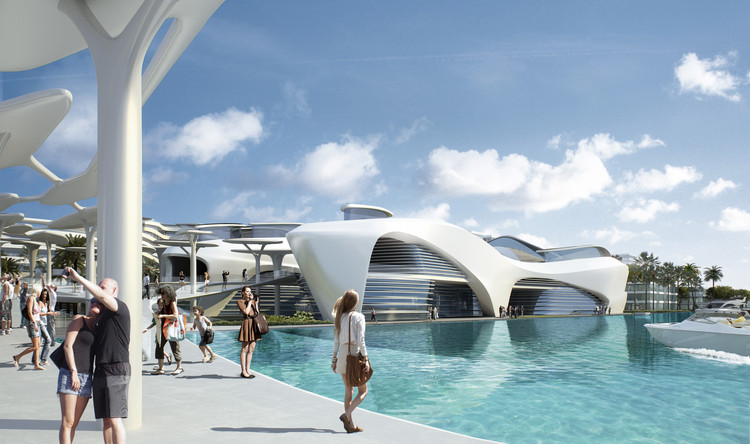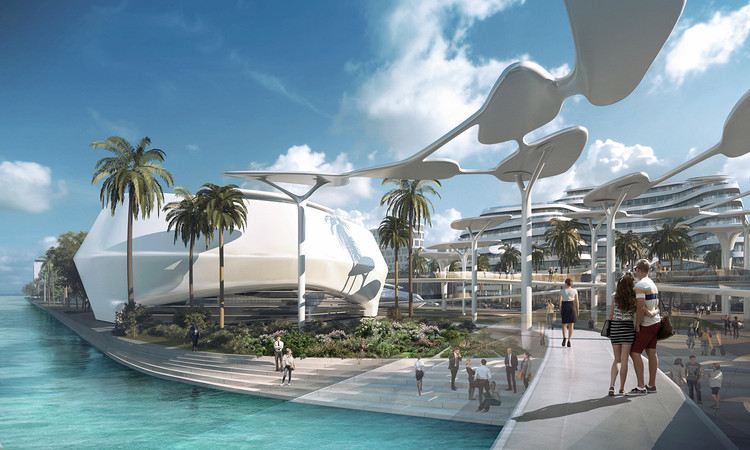
CAA Architects have won first prize in the Maldives Airport Economic Zone competition. Their winning proposal, "Ocean’s Heaven" is a mixed use development made to embrace tropical culture and ocean systems with renewable energy structures in a living belt design. Facing global warming and rising sea levels, the project hopes to create a new model for sustainable development before the Maldives disappear from the world forever.

Designed with ecological energy supplies around the ocean and the city, Ocean's Heaven recognizes the fragile ecosystem of the Maldives. As the world largest archipelago country, the Maldives are famously known as “Paradise on Earth”, which is named after its jewel-like form that lay across the Ocean’s surface. Behind this beauty is a huge environmental crisis; according to the United Nations Environment Program (UNEP), 40% of the greenhouse gases that cause global warming are produced by large buildings. If the attitude towards urban construction and one-time energy use does not change, the fate of an island country like the Maldives will be greatly threatened.


Located at the east coast of Hulhumale, adjacent to Male, the capital of the Maldives on a site of reclaimed land, the project is dissected by the central twin urban axis. BUCG in partnership with the Maldives central government aims to develop 60,000sqm of site area with 100,000 gross sqm, which will consist of functions such as; an airport company service center, international trade center, convention center, island transport hub and shopping, business grade hotel, centralized retail shopping and dining experiences, as well an ocean facing cultural plaza and other supporting amenities. This program of activity will be spread across two construction phases.


Functionally organized to promote the concept of high-density urban living and a productivity core, the design incorporates a transportation hub for road and water commuting, as well as commercial, retail and cultural facilities in one compact inner-city community. Beyond functioning as the islands “nervous system,” this complex doubles as an urban energy incubator. An integrated environmental systems approach was taken, that fully incorporates rainwater and solar energy harvesting, as well as taking advantage of passive cross ventilation and tidal power to generates more than 70% of electricity required to power the development. CAA's projects seeks to weave architecture, art, environment and culture together in the Indian ocean archipelago. In the future, the bio-active design aims to be a landmark for human communities and nature that points towards the future of the Maldives.
Ocean's Heaven is set to complete construction in 2021.




























